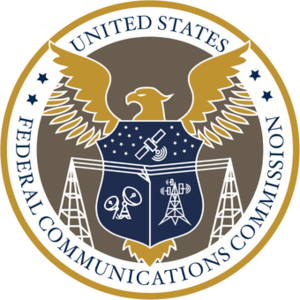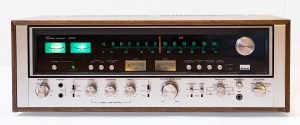
The FCC is now accepting comments regarding FM translators originating program content. We first reported this to you after a group of licensees under the joint name “Broadcasters for Limited Program Origination” told the FCC in a filing that “to serve the public interest with increased program diversity,” both FM boosters and translators should be allowed to originate programming for up to 80 hours a week. The 24 licensees own 108 full-service stations and 85 FM translators. The feds are about to release a “Comments” notice for industry to weigh in on this. Paul McLane in today’s Radio World notes ‘The petition argues that if the FCC considers allowing FM boosters to originate limited programming content to provide zoned programming to a primary station’s service area – as proposed separately by GeoBroadcast Solutions — the same opportunity for limited program origination should be given to translators. The Broadcasters for Limited Program Origination seek a uniform FCC rule change for both FM boosters and FM translators to allow each to originate programming content provided that the primary station is retransmitted for no fewer than 40 hours in any calendar week. The Origination observe that some radio stations may choose to broadcast different localized advertisements. Other stations may broadcast localized city council meetings for two or more communities in their coverage areas. Some broadcasters may determine what serves a particular station’s listeners are multiple localized high school sports games. Or, another broadcaster in a diverse area may broadcast two different kinds of ethnic entertainment programming at certain times of the day. And the group wants the FCC to change its FM translator rules to give four-letter call signs with the suffix “-FX” for FM translator stations that originate limited programming content, presumably to help market these content sources as separate stations. The current rules give translators more clunkier and call signs like W250BC and K237FR. The broadcasters in the filing are Miller Communications/Kaskaskia Broadcasting; the Cromwell Group of Illinois and Hancock Communications; TBE LLC; SSR Communications; Port Broadcasting; the Fingerlakes Radio Group and Chadwick Bay Broadcasting; Blackbelt Broadcasting; Mazur LLC; The Original Company, Old Northwest Broadcasting and The Innovation Center; Virden Broadcasting; Lovcom Inc.; Genesee Media Corp.; Viper Communications; Mountain Top Media; Eastern Shore Radio; and MTN Broadcasting and Eldora Broadcasting. The commission is asking that comments about RM No. 11858 be submitted via its comment system by July 23.’


Mike,
I agree with you, but times change and maybe the “original purpose” as it was defined is no longer able to give the listeners what they need and want, thus listenership decreases. As you say, broadcasters need leeway to try things that will lure back the audience. I just don’t see how having something more relevant coming out of the radio would not be in the public interest. Maybe the term “translator” should be scuttled or at least taken less literally.
Mike, that beautiful Sansui receiver looks like one I had in about 1969 in my first real stereo system.
Anyway, I’ve always thought the F. C. C.’s main responsibility was to assign technical parameters – power, frequency, hours of operation etc. – to keep stations from interfering with each other.
How is program content government’s business? Station management is right there in the neighborhood, the place to figure out what programming will best serve its audience. Approve this request so they can live or die with their own decisions. Somebody might actually come up with a way to revive the radio biz!
Dick – I don’t think it’s so much a case of the FCC dictating the content as it is the class of license & original purpose. A translator is just that – a rebroadcaster of a main station’s signal to help extend it into areas it cannot reach, whether in it’s COL or another community. Originating programming places a translator in the same category as a station originating programming. I think it’s a good move & that the feds should okay this to provide broadcasters with yet more flexibility on how they can best serve their audiences & make the service relevant & hopefully profitable.